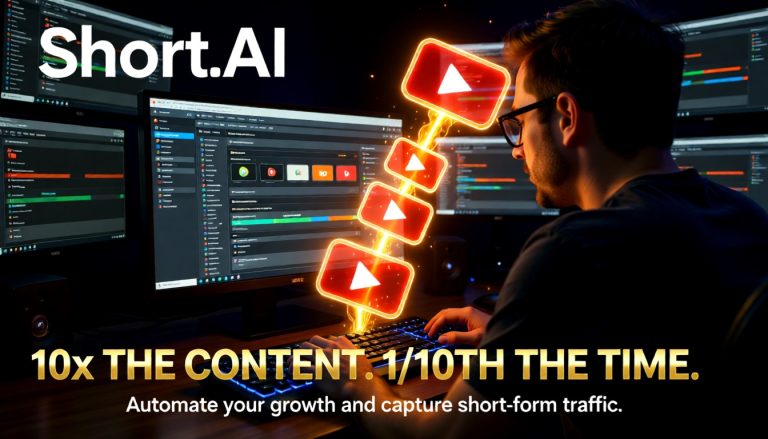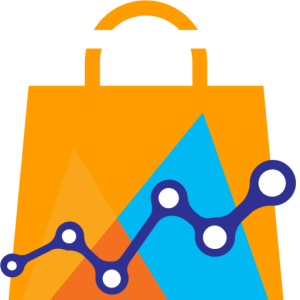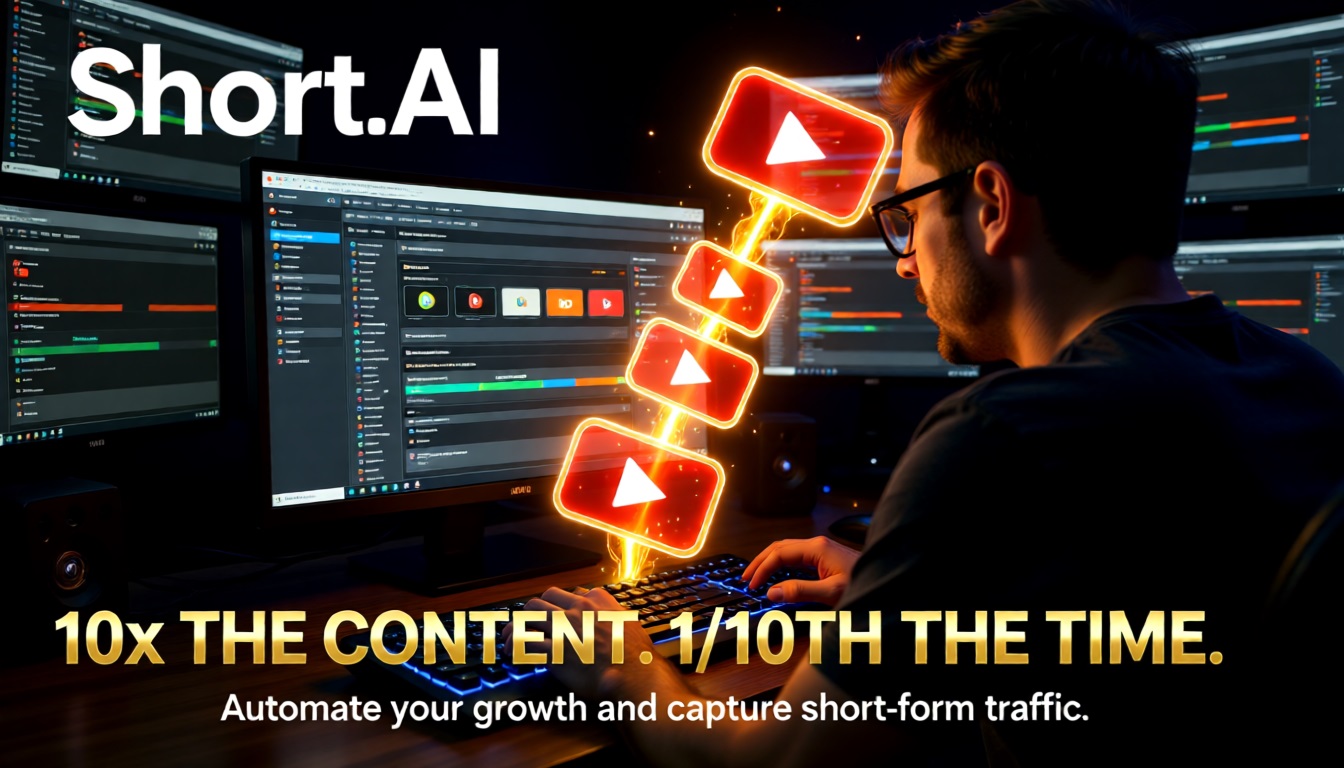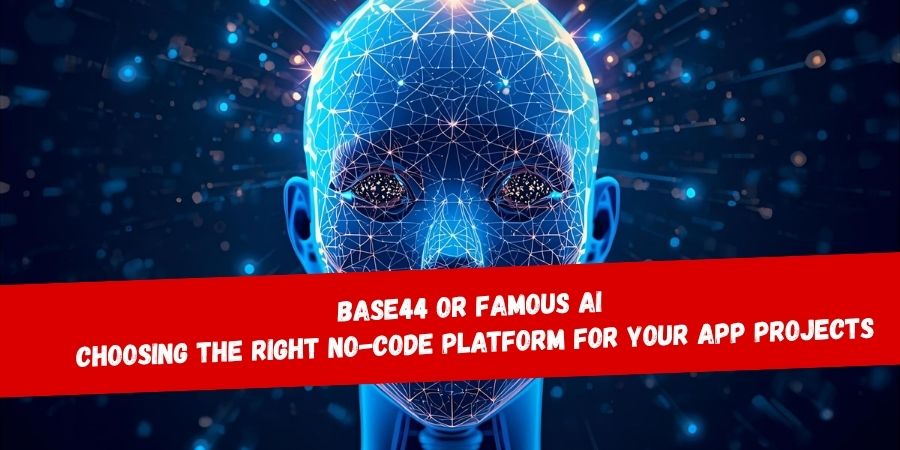Understanding AI: A Brief Overview
Definition of AI
Artificial Intelligence, commonly known as AI, refers to the simulation of human intelligence in machines designed to think and act like humans. The goal of AI is to create systems that can perform tasks that typically require human intelligence, such as understanding natural language, recognizing patterns, solving problems, and making decisions. Essentially, AI encompasses a range of technologies aimed at enabling machines to handle complex tasks autonomously.
As someone who works with AI tools like Short AI, I can attest to how AI transforms the way we create content. For instance, AI can help generate captivating faceless videos and automatically create subtitles with over 99% accuracy, making the tedious editing process a breeze.
Historical Development of AI
The journey of AI began in the mid-20th century when the term ‘Artificial Intelligence’ was first coined by John McCarthy in 1956 at the Dartmouth Conference. This landmark event laid the groundwork for future research in AI.
Here’s a brief timeline of AI’s historical development:
- 1950s-60s: Early research focused on problem-solving and symbolic methods. Programs like the Logic Theorist and General Problem Solver emerged.
- 1970s: The AI field experienced its first “AI winter,” where interest and funding dwindled due to unmet expectations.
- 1980s: The resurgence of AI began with the introduction of expert systems that could mimic human expert decision-making in specific domains, like medicine and finance.
- 1990s: AI began achieving more practical applications, with the emergence of machine learning, allowing systems to learn from data and adapt over time.
- 2010s-Present: The explosion of big data and advancements in computing power led to breakthroughs in deep learning. Today, we see AI integrated into various aspects of our daily lives, from virtual assistants to AI video generators like Short AI that revolutionize content creation.
In short, the historical journey of AI has been fascinating, filled with ups and downs, and it continues to evolve, providing exciting possibilities for the future!
AI’s Exceptional Features
Machine Learning Capabilities
Machine learning, a cornerstone of AI technology, allows systems to learn from data and improve over time without being explicitly programmed. This involves algorithms that can recognize patterns, make predictions, and even adapt to new data inputs. Just think about tools like Short AI, where machine learning models help create engaging short videos effortlessly.
Here are some features that stand out:
- Rapid Processing: Automatic generation of video scripts and content takes a mere 1-2 minutes.
- Data-Driven Insights: Utilizing vast datasets to determine what content resonates best with audiences, leading to increased engagement.
- Adaptability: Models are continuously trained on new data, refining their predictions and improving accuracy.
This adaptability is what empowers content creators to produce compelling faceless videos that resonate with viewers globally, especially when using platforms like TikTok and YouTube.
Natural Language Processing Advancements
Natural Language Processing (NLP) is another exciting facet of AI that focuses on the interaction between computers and human language. It enables machines to understand, interpret, and respond to human language in a valuable way.
Consider how Short AI makes use of NLP:
- Auto Subtitle Generation: It converts spoken language into text with over 99% accuracy, enriching video content with engaging subtitles and ensuring accessibility.
- Script Generation: Using NLP, creators can transform text prompts into full-fledged scripts, utilizing strong hooks and engaging narratives.
- Multi-Language Support: With the ability to generate audio in 32+ languages, creators can reach a diverse audience and cater to global content preferences.
These advancements allow content creators, like myself, to dive into international markets effortlessly by offering their videos in multiple languages.
Computer Vision Innovations
Finally, computer vision is a fascinating area of AI that enables machines to interpret and make decisions based on visual data.
Why does this matter?
- Content Optimization: Powerful algorithms analyze full-length videos, extracting key moments that can become viral shorts in just one click.
- Faceless Video Creation: Imagine being able to create engaging content without ever showing your face! Tools like Short AI capitalize on computer vision to turn traditional content into captivating faceless narratives.
- Visual Appeal: AI can enhance the aesthetic aspects of videos by assessing visual elements like colors, brightness, and structure, making edits according to recognized trends.
With these innovations, content creation becomes not just faster, but also more attractive to the viewer. AI is truly revolutionizing how we connect and engage with our audience!
Impact of AI on Various Industries
AI in Healthcare
AI is revolutionizing the healthcare sector by streamlining processes, enhancing diagnostics, and personalizing patient care. Imagine a world where doctors can diagnose diseases in a fraction of the time, thanks to AI-powered systems. As someone who’s passionate about technology, I’ve witnessed firsthand how tools like predictive analytics can identify at-risk patients before potential health crises arise.
Here are some key impacts:
- Early Diagnosis: AI algorithms can analyze medical images and detect anomalies faster than traditional methods.
- Virtual Health Assistants: These AI bots provide a first line of support, answering patient queries and managing appointments.
- Personalized Treatment Plans: Leveraging data, AI creates tailored healthcare solutions, improving patient outcomes.
By integrating AI into our healthcare systems, we not only increase efficiency but also foster a more proactive approach to patient wellness.
AI in Finance
Fintech is experiencing a transformational shift due to AI, reshaping everything from customer service to risk management. With AI, financial institutions can process vast amounts of data rapidly, allowing for more informed decision-making. Personally, I find it fascinating how algorithms can analyze market trends, shifting the way we think about investments.
Some notable advancements include:
- Fraud Detection: AI systems monitor transactions and flag suspicious activities, enhancing security.
- Automated Trading: Algorithms execute trades at lightning speed based on market data, optimizing profits.
- Personalized Banking Solutions: Chatbots and virtual assistants provide instant support, guiding customers with tailored financial advice.
The impact of AI on finance creates a more efficient and transparent environment for consumers and institutions alike.
AI in Marketing
Finally, let’s talk about the marketing industry, where AI has become a game-changer. From understanding customer behavior to automating campaigns, AI tools allow marketers to create highly targeted initiatives. Having experimented with AI-driven content tools like Short AI, I can attest to the incredible effectiveness in crafting engaging content.
Highlights include:
- Predictive Analytics: Marketers leverage AI to anticipate customer needs and trends, enabling proactive strategies.
- Content Creation: AI tools can generate content, like script templates or engaging social media posts, enhancing productivity.
- Performance Measurement: By analyzing vast data sets, AI delivers insights into campaign success, helping businesses adjust strategies in real-time.
In summary, AI’s impact across healthcare, finance, and marketing is profound. It not only enhances efficiency and personalization but also reshapes how we interact with services and each other. The future looks bright as AI continues to pave the way for innovation and growth!
Ethical Considerations in AI Development
As we continue to explore the transformative nature of AI in various industries, it’s crucial to address the ethical considerations that accompany its development. With such powerful tools at our disposal, like the free AI short video generator from Short AI, we must ensure that these advancements are deployed responsibly and fairly.
Bias and Fairness
One of the most pressing issues in AI development is bias. AI systems are only as good as the data they’re trained on. If the training data contains biased information, the AI can produce biased outcomes, potentially harming certain groups of people. For example, facial recognition technologies have been shown to misidentify individuals with darker skin tones more frequently than their lighter-skinned counterparts.
Key points to consider:
- Diverse Data Sets: Ensuring that AI training data reflects a wide variety of demographics, experiences, and backgrounds.
- Test for Bias: Regularly testing AI systems for biases and revising algorithms to promote fairness in outcomes.
As someone passionate about content creation, I find it essential that tools like Short AI focus on inclusivity, helping content creators engage with diverse audiences without inadvertently promoting bias.
Privacy Concerns
The integration of AI in our daily lives also raises significant privacy concerns. With AI systems often requiring extensive data collection to function effectively, we risk infringing on individual privacy rights. Whether it’s through social media, apps, or AI-generated content, there’s a fine line between personalization and invasion.
What to keep in mind:
- Data Transparency: Users should know how their data is being used and have consent-based options where possible.
- Anonymization Techniques: Employ methods that protect user identities while still allowing AI to learn from valuable data insights.
The aspect of privacy becomes increasingly vital when considering platforms like Short AI, where user-generated content requires sensitive management.
Accountability and Transparency
Lastly, accountability and transparency in AI development are paramount. When AI systems make decisions, knowing who is responsible for those decisions can be murky. This lack of accountability raises questions about trust—especially when AI is used in industries like finance or healthcare.
Considerations for improved accountability:
- Clear Guidelines: Establish protocols to outline the responsibilities of AI developers and users.
- Algorithmic Transparency: Providing insights into how AI algorithms function can enhance users’ trust and understanding of AI systems.
As I actively engage with AI tools, I realize how vital it is that we not only embrace the technological advantages they bring but also address the ethical implications. This will ensure a responsible and equitable future for AI technology.
Future Trends and Possibilities
As we delve deeper into the realm of artificial intelligence and its applications, it’s exciting to consider what the future holds. The recent advancements in AI technology, especially tools like Short AI, reveal just a glimpse of the incredible trajectory we’re on. Let’s explore some future trends that may shape our world in the years to come.
Integration of AI with IoT
The Internet of Things (IoT) and AI are poised to revolutionize industries by making them smarter and more connected. Imagine this: your kitchen appliances not only communicate with each other but also analyze your food consumption patterns using AI algorithms to suggest healthier choices!
Here are a few areas where IoT and AI integration will shine:
- Smart Homes: Automated systems that learn your habits to optimize energy use, enhance security, and improve comfort.
- Healthcare Monitoring: Wearable devices capable of real-time monitoring that alert healthcare providers to potential issues before they become serious.
- Supply Chain Optimization: AI can analyze data from connected devices across the supply chain, predicting demand and managing inventory more effectively.
Having seen how AI tools like Short AI streamline video creation, it’s thrilling to think about how similar integrations could enhance our daily lives!
AI in Autonomous Vehicles
Another exciting frontier is the development of autonomous vehicles, where AI plays a crucial role in safety and efficiency. The promise of self-driving cars and drones could transform urban transportation and logistics.
Key benefits include:
- Improved Safety: AI systems analyzing data from multiple sensors can reduce accidents by making faster and more informed decisions.
- Traffic Management: AI can optimize traffic flow and reduce congestion, leading to greener transportation options.
- Accessibility: Autonomous vehicles could provide new mobility solutions for the elderly or disabled, enhancing their quality of life.
Envisioning a world where cars can drive themselves ignites my imagination about the possibilities of travel-free time on my commute!
Challenges and Opportunities Ahead
While the future is undoubtedly promising, there are challenges that we must navigate. Issues such as privacy concerns, data security, and the ethical implications of AI decisions require careful consideration.
Opportunities to consider:
- Innovation in Job Creation: New sectors will emerge that focus on managing AI systems, creating jobs that didn’t exist a decade ago.
- Global Collaboration: As AI technologies develop, collaboration across borders can lead to a more inclusive technology landscape, ensuring these advancements are accessible to all.
In conclusion, as we explore the integration of AI with IoT and venture into the realm of autonomous vehicles, the challenges we face can often turn into opportunities. Embracing these exciting trends while remaining vigilant in addressing ethical concerns will shape a future where technology significantly enhances our lives. Let’s embrace this journey together!










